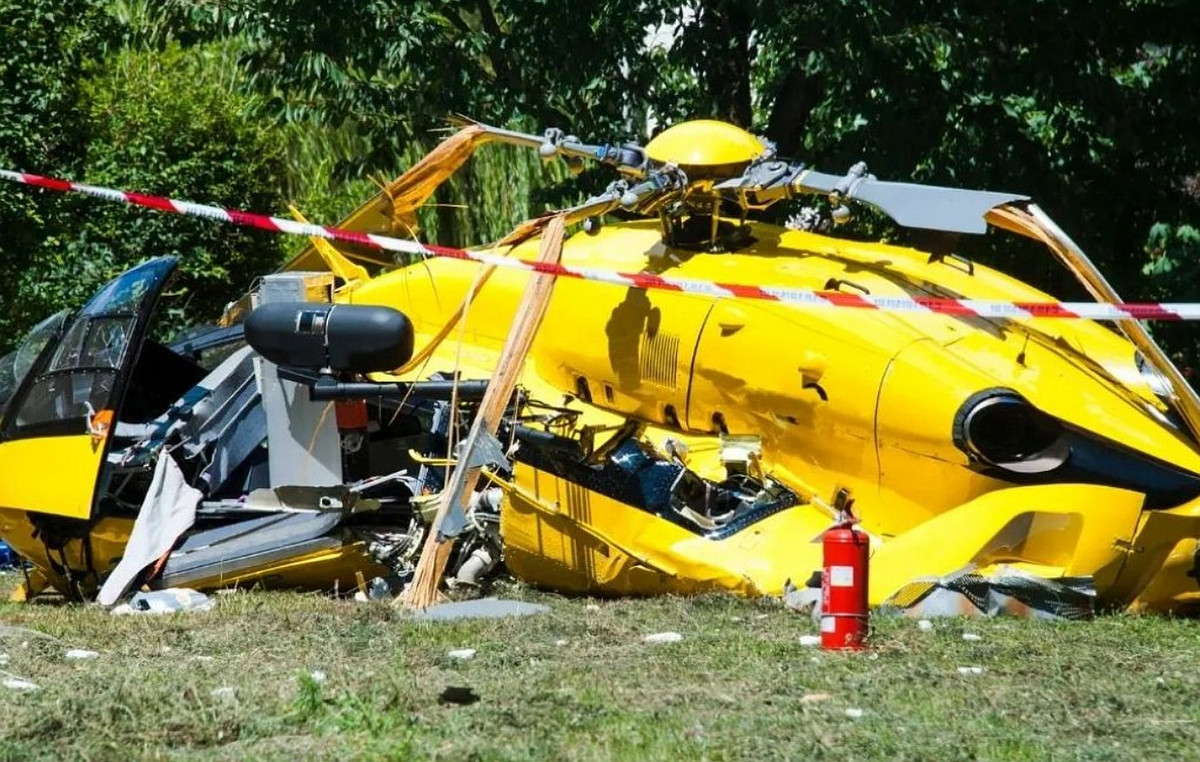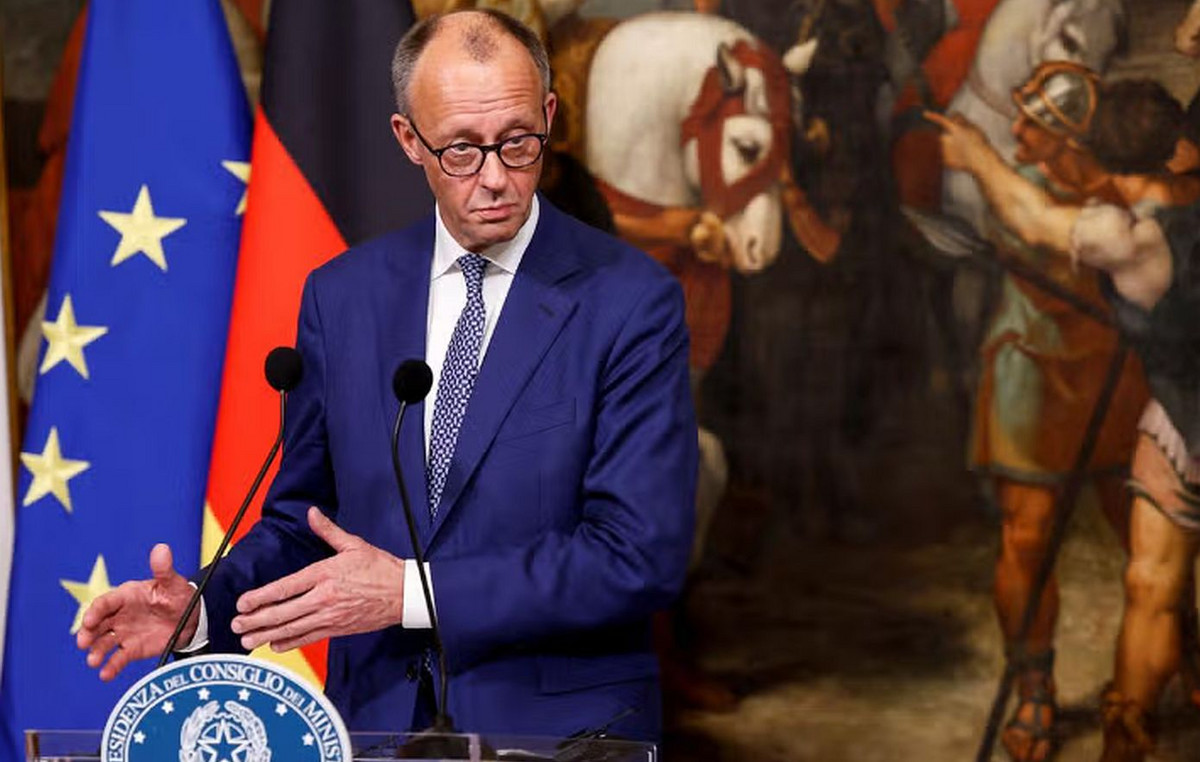A right-wing German politician made comments considered so explosively outside acceptable political discourse that his party was isolated by other far-right leaders, breaking up an important coalition in the European Parliament.
Maximilian Krah of the Alternative for Germany (AfD) party told an Italian newspaper that he did not automatically consider all members of a notorious Nazi paramilitary group to be criminals.
He claimed that some members of the SS, whose main role was to protect concentration camps during World War II, were actually just farmers.
“Before declaring someone a criminal, I want to know what they did. Among the 900,000 men of the SS there were also many farmers: there was certainly a high percentage of criminals, but not all of them were criminals. I will never say that someone who wore an SS uniform was automatically a criminal,” Krah told La Repubblica last weekend.
The AfD has since banned Krah, 47, its leading candidate in June's European elections, from making public appearances.
Experts say his remarks also sent ripples across Europe's far right, shining a light on how the continent's far-right parties view themselves and their associations.
After Krah's interview was published on April 18, his party suspended him on Wednesday (22) and said he had taken “full responsibility” for his actions and agreed to resign from the federal executive council with immediate effect.
In a scathing statement, the AfD accused Krah of having caused “enormous damage to the party in the current election campaign”.
It is not immediately clear whether Krah remains the AfD's official lead candidate for the upcoming European elections.
Lorenz Blumenthaler, a political analyst at the Amadeu Antonio Foundation in Berlin – which runs educational projects and investigates right-wing extremism, racism and anti-Semitism – told CNN International that the AfD only takes measures like this in certain circumstances.
“The only time there is that red line is when they feel it is harming the outcome of the vote. And this will be the only time they act or if they fear it will basically change the way the German security forces view them as the AfD.”
Blumenthaler added that reprimanding Krah so close to an important election is a pretty drastic political step.
This “delegitimizes you as a political party and harms you far more than just running with a lazy dog [ou candidato peso morto],” he told CNN .
Expelled from coalition
On Thursday (23), a coalition of far-right parties in the European Parliament expelled the AfD from the group.
The Identity and Democracy (ID) bloc said in a statement that it had decided to exclude the AfD, “with immediate effect”, adding that “the ID Group no longer wants to be associated with the incidents involving Maximilian Krah, AfD nominee for the European elections.”
In Paris, leaders of the French right-wing National Rally (RN) party – the successor to the National Front led by Marine Le Pen, and part of the ID alliance – also dissociated themselves from the AfD.
The president of the RN, Jordan Bardella, said in a debate on French television on Tuesday (21) that the AfD had “crossed the limits”.
“We will have new allies after the European elections and we will no longer be in the same group as the AfD,” added Bardella.
Joe Düker, a researcher at the Center for Monitoring, Analysis and Strategy (CeMAS) think tank, told CNN that European far-right parties, and the RN in particular, have tried to present themselves as more moderate.
“Far-right populists are always trying to appeal to a broad voter base and are always trying to give themselves an image that appears cleaner than they actually are. We know that Le Pen's party has been trying to clean up its image over the last two years. She broke with her father, the founder of that party, because of this.”
Blumenthaler described this image cleansing as the “most absurd dynamic we have, a new far-right self-awareness across Europe.”
However, this feeling of self-awareness does not seem to touch the AfD.
There have been a number of incidents in which members of the AfD have openly expressed far-right ideologies in Germany. Recent scandals have also involved members accused of spying for China and accepting bribes from Russia.
Björn Höcke, the AfD's regional leader in the eastern state of Thuringia, was fined 13,000 euros ($72,470) by a German court in early May for using banned Nazi slogans, according to AfD affiliate N-TV. CNN International .
Höcke, a former history teacher, intends to run as the AfD's main candidate in the next state election in September and is currently the favorite to win.
According to Blumenthaler, these incidents do not seem to harm the party, especially in Germany.
“After basically bringing down the European coalition [de extrema-direita]this really hurts the AfD at European level, but I don’t think it will affect its electoral base that much here in Germany”, he added.
More of the same
Düker told CNN that the trend of increasing AfD extremism is likely to continue. “We can expect more radical and extreme things to become more acceptable,” he said.
The AfD's open radicalism is also an interesting phenomenon for Blumenthaler, especially when compared with its European allies.
“It is still the Austrians and the German far-right branches that are the craziest. You would think that the taboo due to the German and Austrian past would be much greater here. And that the far right would act much more strategically, trying to cover up what they say and how they act, but instead they are becoming increasingly radicalized,” he told CNN .
The AfD is under internal surveillance for the threat it poses to German democracy and, despite a recent decline, it currently has greater engagement than each of the three parties in the coalition that now governs the country.
Düker noted a similarity between the AfD and Donald Trump, adding that: “The more scandals and the more outrageous things the former president said, the more his followers seemed to become even more committed to him. And something similar seems to be happening with the AfD.”
With input from Barbie Nadeau and James Frater
Source: CNN Brasil
Bruce Belcher is a seasoned author with over 5 years of experience in world news. He writes for online news websites and provides in-depth analysis on the world stock market. Bruce is known for his insightful perspectives and commitment to keeping the public informed.







